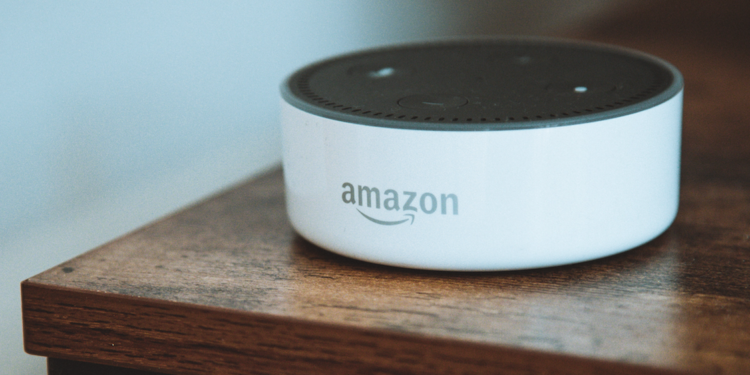Amazon announced this month that it had sold over half a billion Alexa-enabled devices worldwide. Now Amazon is facing fines of over $30 million in two US federal lawsuits regarding the Alexa and Ring devices.
The Federal Trade Commission (FTC) and the Department of Justice (DOJ) have charged Amazon with violating children’s privacy laws under the Children’s Online Privacy Protection Act Rule (COPPA Rule).
In a separate lawsuit, delivered on the same day, Amazon has been accused of violating the FTC Act by practising unfair and deceptive business methods via Ring’s illegal customer surveillance.
Has Amazon’s Alexa violated children’s privacy?
In a press release on May 31, the FTC announced it required the company to pay $25 million in civil penalties and to delete voice and geolocation data it collected from children in violation of the COPPA Rule.
It is said that Amazon failed to ensure parents’ rights to delete data collected from their children as required by the law.
The 21-page complaint alleges that Amazon has been keeping young users’ voice recordings and geolocation data while preventing parents from “exercising their deletion rights.” Furthermore, the company is accused of having unlawfully misrepresented the deletion process of the retained data.
Under the settlement, Amazon will be required to notify users of its retention and deletion policies for data and the FTC case against them.
In addition, the company will be prohibited from further misrepresenting its privacy policies regarding geolocation and voice information and is mandated to implement a privacy program related to the company’s use of geolocations.
Lastly, it must delete inactive accounts of children, and it is prohibited for Amazon to keep the geolocation of voice data of children subject to consumer deletion requests.
1. @FTC & @JusticeDept took action against @Amazon for deceiving people about how it'd store the voice & geolocation data it collected through Alexa. This included telling parents that they could delete kids' voice data, but then keeping it for years.https://t.co/5kZfhCdOe5
— Lina Khan (@linakhanFTC) May 31, 2023
“Amazon’s history of misleading parents, keeping children’s recordings indefinitely, and flouting parents’ deletion requests violated COPPA and sacrificed privacy for profits,” said Samuel Levine, Director of the FTC’s Bureau of Consumer Protection.
Have Ring employees illegally surveilled customers?
Additionally, the multibillion-dollar company has been charged with violating the FTC Act by giving employees unfettered access to recordings of the Ring home cameras and failing to stop hackers from accessing users’ cameras.
Amazon purchased the Californian company Ring in 2018. The subsidiary company of Amazon sells doorbell cameras, alarm systems, home security cameras and smart lighting.
It is alleged that there has been at least one instance where an employee has engaged in viewing customers’ private videos.
The FTC’s press release states:
“One employee over several months viewed thousands of video recordings belonging to female users of Ring cameras that surveilled intimate spaces in their homes such as their bathrooms or bedrooms.”
Related Articles: Apple Could Be Forced to Pay a $14 Billion Tax Bill by EU. Here’s Why | Artificial Intelligence: How Worried Should We Be? | Who Is Liable if AI Violates Your Human Rights? | Bezos Pledges to Donate His Fortune While Amazon Lays off Workers
The FTC Act prohibits unfair or deceptive business practices, which are actions that cause substantial injury to consumers that cannot reasonably be avoided, and actions that mislead the consumer.
In the lawsuit, which was also filed on May 31, the FTC has requested $5.8 million in consumer refunds. Additionally, the complaint mandates the deletion of data and the establishment of a comprehensive privacy and data security program
Further, Ring is prohibited from further misrepresenting privacy and security to consumers and has to give a privacy notice to customers. All are subject to third-party assessments, compliance and incident reports.
“Ring’s disregard for privacy and security exposed consumers to spying and harassment,” said Levine, stressing the FTC’s claim makes clear that companies won’t benefit from putting “profit over privacy.”
A message to other Big Tech companies?
Amazon has agreed to settle both lawsuits, despite disagreeing with the FTC’s claims about Alexa and Ring, saying Alexa and Ring devices were built with strong privacy standards.
However, in a press release regarding the Alexa settlement, Amazon stated that “this settlement puts the matter behind us, and we believe it’s important to put the settlement in the right context.” Both proposed orders are subject to approval by a federal judge.
The two settlements are seen as an action by the FTC to hold Big Tech accountable for prioritising data collection profits over user privacy.
In light of recent advancements in artificial intelligence (AI) technology and rising concerns about consumer privacy, these lawsuits are a step towards limiting AI companies from abusing their power regarding data collection.
Machine learning is no excuse to break the law. Today's settlement on Amazon Alexa should set off alarms for parents across the country – and is a warning for every AI company sprinting to acquire more and more data.
My full statement with @LinaKhanFTC and @RKSlaughterFTC: pic.twitter.com/clGVikq8gz
— Alvaro Bedoya (@BedoyaFTC) May 31, 2023
How can Amazon customers protect their privacy?
For those who have an Amazon Alexa or a similar device in their home and want to protect their privacy, USA Today Tech suggested a few steps to take to improve one’s privacy besides unplugging it.
They say it’s important to note that Alexa is not constantly recording, but it always listens for its wake command, such as “Alexa.” Sometimes it may mistake other words for the command.
Amongst other suggestions, one of their pieces of advice is to turn off the microphone. Another is to change the wake command to something you don’t often use to help prevent accidental activations.
Furthermore, they also say it’s a good idea to turn up the speaker volume so you can hear if Alexa is responding, even if you didn’t intend to activate it. On top of that, it is recommended to disable Amazon’s access to your contacts.
Finally, USA Today explains that Alexa stores all commands you have given to it, but that you can delete this in the device’s app.
Many other online resources explain the potential risks of AI devices like Alexa or Ring. Before purchasing any such device, it’s essential to know your rights and know how to manage your privacy settings.
— —
Correction: The original description of the allegations against Ring employees was unclear and potentially misleading; it has been changed to clarify that an employee has been accused of engaging in viewing customers’ private videos.
Editor’s Note: The opinions expressed here by the authors are their own, not those of Impakter.com — In the Featured Photo: Amazon Echo Dot. Featured Photo Credit: Nicolas Leclercq.










